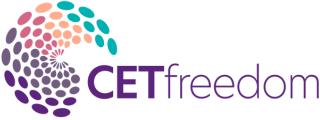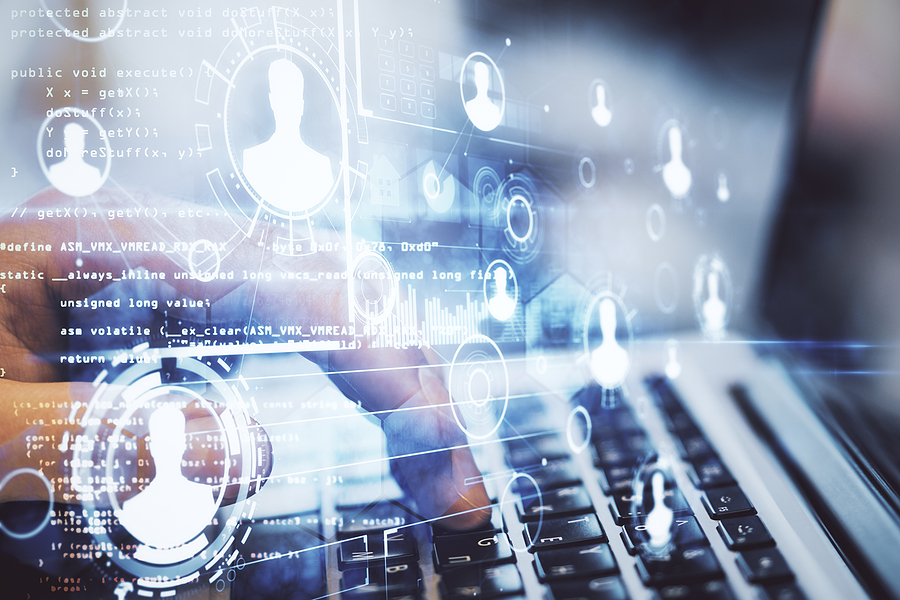In the intricate dance of life, finding harmony between personal responsibility and societal issues emerges as a quest as challenging as it is crucial. It’s a journey that beckons individuals to navigate the delicate balance between self-care and the collective well-being, urging them to ponder where one’s duty ends and another’s begins. This exploration is not just about unearthing answers but about discovering a path that resonates with one’s values and the larger tapestry of community life.
As society evolves, so too does the complexity of its challenges, making the quest for balance more relevant than ever. It invites a deep dive into the nuances of accountability, empathy, and action, offering a rich ground for reflection and growth. Engaging with this topic is not merely an intellectual exercise; it’s a personal voyage towards understanding one’s role in a interconnected world. This introduction sets the stage for a thoughtful exploration of how individuals can navigate their responsibilities amidst the pressing issues of our times, striving for a harmony that benefits both the self and society at large.
Understanding Personal Responsibility and Societal Issues
The concept of personal responsibility often dances on a line, teetering between one’s own needs and the larger picture of societal issues. It’s a balancing act, where understanding the nuances becomes crucial in fostering a healthy relationship between individual actions and community welfare.
Personal responsibility involves recognizing the role each person plays in their own life, including the consequences of their choices and actions. It’s about owning one’s decisions, for better or worse, and understanding how these decisions ripple out into the wider world. This acknowledgment is pivotal in navigating the complexities of societal challenges, as personal accountability can significantly impact collective well-being.
Societal issues, on the other hand, encompass the broad challenges that affect communities and populations at large. These can range from environmental concerns, such as climate change, to social issues like inequality and injustice. Societal problems demand collective action, yet they also require individuals to contribute toward solutions through personal responsibility. Recognizing the interconnectedness of personal choices and societal issues is the first step in contributing to a more equitable and sustainable world.
The relationship between personal responsibility and societal issues is not a one-way street. As societies evolve, so do the expectations placed on individuals. The digital age, for instance, has amplified the impact of personal choices, making privacy, digital footprints, and online behaviour part of the broader societal discourse.
Acknowledging the weight of personal decisions within the societal fabric underlines the importance of informed, conscientious choices. Such awareness not only promotes personal growth but also contributes to societal progress, bridging the gap between individual actions and collective challenges. As individuals navigate their role, empathy emerges as a critical tool, enabling one to understand and appreciate the experiences of others, thus fostering a supportive and cohesive community.
Understanding the intricate dance between personal responsibility and societal issues requires continuous learning, reflection, and action. By acknowledging one’s role within the larger societal framework, individuals can make informed choices that benefit both themselves and society at large, paving the way for a harmonious and progressive relationship between the self and the collective.
The Interconnection Between Individual Actions and Societal Problems
In the quest for a balanced interplay between personal responsibility and societal issues, it’s critical to shine a spotlight on how individual actions intricately weave into the fabric of societal problems. This connection underscores the power of personal choices, illustrating that what one does—or doesn’t do—ripples through society in significant ways.
At the heart of this interconnection lies the reality that societal challenges, from climate change to social inequality, aren’t distant entities detached from individual behaviours. Instead, they’re a mosaic of individual actions pieced together, for better or worse. For instance, choosing to recycle, use public transportation, or support local businesses are small, personal decisions that, en masse, have the potential to combat environmental degradation and foster economic sustainability.
Similarly, the digital age has brought with it a heightened sense of how personal actions can influence societal issues. Social media platforms allow for the amplification of voices, where an individual’s post or tweet can spur awareness and action on social injustices, demonstrating the sway of personal responsibility in the digital realm.
On the flipside, negligence or indifference towards one’s role can exacerbate societal problems. Ignoring the implications of one’s carbon footprint, for instance, contributes to the environmental crisis at a global scale. Similarly, uninformed sharing of information online can spread misinformation, underlining the importance of critical thinking and verified sharing in the information age.
The synergy between individual actions and societal issues also points to the shared responsibility in addressing these challenges. Opting for sustainability, advocating for equality, and exercising discernment online are steps individuals can take to sow seeds of positive change. These choices send a powerful message that resonates within communities, encouraging a collective shift towards a more equitable and sustainable society.
Hence, the line between personal responsibility and societal issues isn’t just a fine one—it’s a dynamic interface where individual decisions morph into societal outcomes. Recognizing and navigating this interconnection paves the way for informed, empathetic engagement with the world, embodying the essence of what it means to balance personal responsibility with the complexities of societal challenges.
Striking the Balance
In navigating the delicate dance between personal responsibility and societal issues, it’s crucial not just to talk the talk but to walk the walk. Striking the right balance requires a blend of self-awareness, empathy, and action. Recognising personal influence on societal issues illuminates the paths towards constructive change, blending individual actions with collective efforts effectively.
Identifying Individual Impact
Individual decisions, from the mundane to the momentous, ripple through society in ways often underestimated. Reducing carbon footprint by opting for public transport, supporting local businesses over multinational corporations, or choosing sustainable products over single-use items — each choice matters. Recognising these impacts steers individuals towards responsibility, setting a precedent for societal change.
Cultivating Empathy and Awareness
Empathy bridges the gap between personal experiences and societal issues. Education and awareness-raising about global challenges foster empathy, encouraging a deeper understanding of the struggles faced by others. This understanding, in turn, inspires actions rooted in compassion, driving societal progress.
Collaborating for Collective Action
No man is an island, and no singular effort can tackle societal issues alone. Collaboration amplifies impact, marrying personal responsibility with collective action. Campaigning for policies that protect the environment, participating in community projects, or volunteering for social causes—each act contributes to a larger wave of change.
Balancing Acts
Balancing personal responsibility with societal issues is an ongoing journey. It involves constant learning, adapting, and engaging with the world in meaningful ways. Striving to make informed choices, staying empathetic to the plights of others, and joining forces with like-minded individuals can forge a path towards a more equitable, sustainable society. Striking this balance isn’t just beneficial; it’s imperative for the progress and well-being of both individuals and the larger community.
Examples of Balancing Personal Responsibility and Societal Issues
Balancing personal responsibility with societal issues involves making conscious decisions that benefit both the individual and the community. Here are some tangible examples illustrating how this balance can manifest in everyday situations:
- Recycling and Waste Reduction: Individuals take responsibility for their carbon footprint by recycling, using reusable bags, and reducing waste. This small step, when performed collectively, can significantly decrease pollution and protect natural resources, addressing environmental degradation.
- Ethical Consumption: Choosing to support businesses that engage in fair trade practices or produce sustainable products exemplifies balancing personal responsibility with societal issues. This choice not only meets personal needs but also promotes ethical standards in the marketplace, encouraging more companies to adopt responsible practices.
- Community Involvement: Participating in community cleanup efforts or volunteering at local shelters demonstrates a commitment to improving societal conditions. By investing personal time and effort, individuals can help address social issues such as homelessness and environmental cleanliness directly.
- Advocacy and Awareness: Speaking out on issues of social injustice or promoting awareness about mental health challenges combines personal conviction with societal concern. This approach uses personal platforms, such as social media, to educate others and advocate for change, reinforcing the idea that societal issues require collective action.
- Educational Empowerment: Engaging in or supporting educational programs that aim to uplift underprivileged communities showcases a balance between personal growth and societal improvement. Education empowers individuals and equips them with the tools to contribute positively to society, breaking cycles of poverty and inequality.
Each example demonstrates how individual choices and actions, no matter how small, can complement broader societal efforts to address complex issues such as environmental sustainability, social inequality, and community welfare. Through conscious living and active participation, individuals can play a crucial role in forging a more equitable and sustainable future.
Overcoming Challenges in Finding Balance
Overcoming challenges in finding balance between personal responsibility and societal issues isn’t a walk in the park, but it’s definitely achievable with a bit of strategy and a lot of determination. Individuals often find themselves at a crossroads, trying to juggle their personal contributions to society with the collective action needed to address broader issues. The task may seem daunting, but breaking it down into achievable steps can make all the difference.
Establishing Clear Goals
The first step involves setting clear, actionable goals. Whether it’s reducing one’s carbon footprint by adopting a more sustainable lifestyle or advocating for social justice within one’s community, having a specific target in mind clarifies the direction of personal efforts. This specificity helps in measuring progress and maintaining focus amidst a plethora of societal challenges.
Educating Oneself and Others
Knowledge is power, and educating oneself about the nuances of societal issues is crucial. This education isn’t solely for personal benefit; it’s equally important to share this knowledge through community education and engagement. This could involve organising workshops, participating in community discussions, or leveraging social media to spread awareness. Disseminating information empowers others to make informed decisions, thereby amplifying the impact of collective action.
Networking and Collaboration
No man is an island, and this holds especially true when addressing complex societal issues. Building networks with like-minded individuals or groups offers support and opens up avenues for collaboration. Joining forces not only amplifies the impact of individual actions but also fosters a sense of community and shared purpose. Collaborative efforts, whether in the form of community cleanups or advocacy campaigns, harness the collective power needed to instigate significant societal change.
Embracing Flexibility and Resilience
The path to balancing personal responsibility with societal issues is seldom straight. It’s filled with obstacles and setbacks that test one’s resolve. Embracing flexibility in approach and staying resilient in the face of challenges are key to maintaining momentum. This might mean adapting strategies in response to new information or setbacks and viewing failures not as defeats but as opportunities for growth and learning.
Seeking and Offering Support
Finally, recognizing when to seek support and when to offer it to others is paramount. Whether it’s seeking advice from experts in sustainability or social justice, or offering a helping hand to those just beginning their journey towards social responsibility, mutual support plays a critical role in sustaining individual and collective efforts towards societal change.
The Way Forward
Having dissected the intricate layers of balancing personal responsibility with societal issues, it’s clear this path is neither straightforward nor simple. Nonetheless, specific strategies can pave the way for a more harmonious relationship between individual actions and broader societal welfare.
Setting Achievable Goals
Realistic goal-setting stands out as a fundamental step. It involves identifying personal strengths and how they can address societal challenges, such as volunteering skills for community projects or reducing carbon footprint by adopting greener travel options.
Commitment to Continuous Education
Knowledge empowerment is key. Staying informed about global issues, understanding their nuances, and knowing the most effective interventions can amplify the impact of individual efforts. Resources such as online courses, workshops, and podcasts offer accessible venues for self-improvement and societal contribution.
Cultivating a Network of Support
No man is an island, especially when addressing multifaceted societal dilemmas. Networking, both online and offline, fosters a sense of community and shared purpose. Collaborations with like-minded individuals or groups enhance the reach and potency of concerted efforts.
Embracing Adaptability and Resilience
Change is constant, and so are challenges in balancing personal and societal responsibilities. Adaptability and resilience ensure individuals remain effective despite setbacks. Solutions often require iterative learning and flexibility in approach, allowing for the refinement of strategies over time.
Encouraging Support and Accountability
Finally, offering and seeking support sustains momentum. Peer motivation and accountability can reinforce commitment to personal and collective goals. Celebrating small victories together keeps morale high, reminding everyone involved of their contribution’s value to the larger societal fabric.
Navigating the delicate equilibrium between personal responsibility and societal issues demands strategy, dedication, and a profound sense of community. By fostering an environment where individual actions are aligned with collective well-being, the journey toward societal change, though challenging, becomes more attainable and fulfilling.
Conclusion
Striking a balance between personal responsibility and societal issues requires a nuanced approach that fosters individual accountability alongside collective action. It’s about recognising the power of personal decisions in shaping a more equitable and sustainable world. Through adopting practices such as recycling, ethical consumption, and community advocacy, individuals can contribute significantly to societal change. However, it’s equally crucial to embrace the journey with flexibility, resilience, and a supportive network. Achieving this equilibrium doesn’t just benefit society; it enriches personal growth and fosters a deeper connection with the community. Ultimately, the path to harmonising personal actions with societal welfare lies in continuous effort, education, and collaboration, setting the stage for meaningful change.
If you’d like to learn more about finding harmony between personal responsibility and societal issues, go here.







